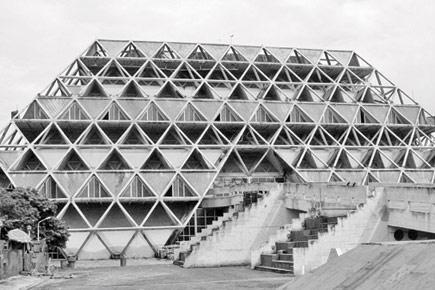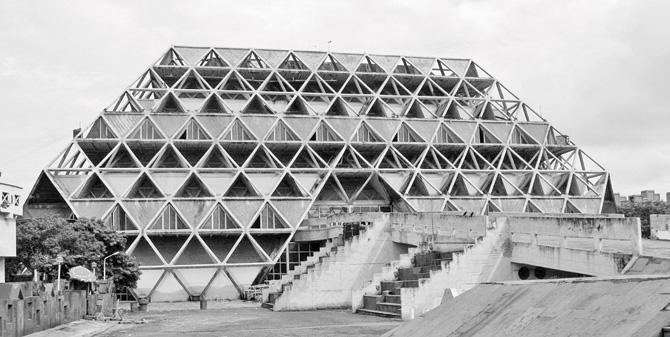With the recent, hasty demolition of New Delhi's iconic Hall of Nations, the very idea of urban heritage is under renewed threat


The Hall of Nations in Delhi that bit dust recently.
ADVERTISEMENT
 Three days after the shocking demolition of the Hall of Nations in New Delhi on April 23, World Monuments Fund, a prestigious US-based private non-profit organisation committed to the conservation of heritage treasures, posted a heartfelt note in its newsletter.
Three days after the shocking demolition of the Hall of Nations in New Delhi on April 23, World Monuments Fund, a prestigious US-based private non-profit organisation committed to the conservation of heritage treasures, posted a heartfelt note in its newsletter.
Penned by its president Joshua David, it said they regretted the news, revealing that the organisation had finalised the landmark structure as one of the featured buildings in Modern Century - a recent initiative to bring attention to world's modern buildings, and look at ways to study, conserve and celebrate these progressive emblems of dynamic cities.
15 years too young
Back in November 2015, the Indian government had announced plans to redo the entire Pragati Maidan complex (in which the Hall stood), and replace it with a 'modern' exhibition ground. The demolition of all non-AC buildings was to be the first step in this direction.
From New York's Museum of Modern Art to Raj Rewal and Mahendra Raj - the architect and engineer of the building - national and world bodies had urged the government to preserve the Hall of Nations, which was opened in 1970 and stood as a symbol of progressive India. It was built to hail 25 years of India's Independence. The landmark was among the largest clear span concrete structures in the world. In fact, it was on INTACH's list of modern heritage sites that had to be conserved.
However, the government's Heritage Committee had ruled that modern heritage sites had to be at least 60 years old to fit the bill. The Hall of Nations fell 15 years short, and in one telling blow, the court ruling on April 20 erased a chapter from India's modern urban history.
Caring for the old
This brings us to the conservation of urban heritage across the rest of India, especially in Mumbai. The Heritage Conservation Committee rule to tag buildings that are only 60 years old or older as heritage is a concern. The haste in which the Hall of Nations was demolished, without considering any of the pleas by important bodies, makes us wonder about the health of some of the city's finest modern buildings.
From Charles Correa to IM Kadri, the Mumbai of the 1960s and 1970s was created from their drawing boards. And superior ones, these were. Be it the Kanchanjunga building, Nehru Centre, Jehangir Art Gallery and Haj House or the countless planned precincts and residential colonies from the same era that went on to stamp localised styles, all of it in totality represents Mumbai's urban heritage and character.
The concern is that in the name of redevelopment, 'state-of-the-art' construction and progress, precious landmarks in the city should not be at the risk of getting phased out, one by one.
Despite sustained efforts by the conservation community, Pragati Maidan lost its jewel in one sweeping judgment, all in the name of more 'pragati'. Mumbai's heritage watchdogs must be better prepared to counter similar shocks to safeguard its urban heritage.
mid-day's Features Editor Fiona Fernandez relishes the city's sights, sounds, smells and stones... wherever the ink and the inclination takes her. She tweets @bombayana. Send your feedback to mailbag@mid-day.com
 Subscribe today by clicking the link and stay updated with the latest news!" Click here!
Subscribe today by clicking the link and stay updated with the latest news!" Click here!






